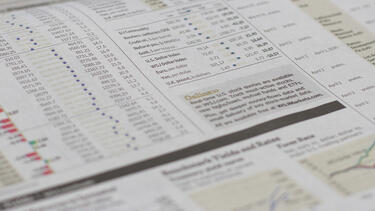Behavioral
CEOs Invest Less in Corporate Social Responsibility When Their Own Money Is At Stake
A study co-authored by Yale SOM’s Kelly Shue finds that when CEOs have a larger financial stake in their companies, or when they face stronger shareholder oversight, they cut back spending on corporate social responsibility efforts.

Inspiring Economic Growth
Robert Shiller proposes government spending that inspires a vision of a better future.
More Public Toilets May Reduce Sexual Assault in South Africa
A new study by researchers at the Yale School of Management and the Yale School of Public Health.
Can We Have Economically Secure Retirements?
The end of defined-benefit pensions and a volatile stock market have made many Americans skeptical that they can retire comfortably. Is a new model emerging for how we plan for retirement? A panel of experts and practitioners talks about policies to help us bolster our retirement savings.

Community Motivation and Subsidies Increase Toilet Use in Developing World
A combination of community motivation and subsidies targeted to the poor is the most effective way to increase toilet ownership and use, and decrease open defecation, in developing countries, according to a new study published in the journal Science.
Rethinking Marketing and Customers: Lessons from Behavioral Economics
Four experts gave a wide-ranging overview of how insights from behavioral economics are being applied in governments, businesses, and other organizations.
Balancing the Letter and the Spirit
Should organizations favor the dependable efficiency of rules and standards or a less calculated but more flexible operation that bends to accommodate individual situations? How about both?
Anxiety and Interest Rates
In a New York Times op-ed, Professor Robert J. Shiller explores the link between people’s feelings of uncertainty about the future and the unusual dynamics at work in today's economic world.
Can Online Reviews Be Trusted?
The online, user-generated review is a boon for consumers—a chance to sidestep promotional claims and get an honest assessment. But as soon as reviews appeared online, fake reviews followed. A study co-authored by Professor Judith Chevalier looks at the prevalence of fake hotel reviews and tests a hypothesis about who might post them and why.
Coworkers Affect Retirement Savings Rates
Investment companies including Fidelity, Putnam Investments, and Voya Financial are rolling out tools that tell investors how their retirement savings compare to those of their peers. This social comparison is intended to motivate investors to increase their savings; however, new research shows that it can have the opposite effect.
Why Do Our Peers’ Financial Decisions Affect Our Own?
The choices we make—the cars we drive, the neighborhoods we live in, the gyms we join—are influenced by our social networks, the people we surround ourselves with. Our financial choices are no exception. While thousands of studies have examined peer effects, a new study co-authored by Florian Ederer, assistant professor of economics, is the first to clearly identify the two channels of social influence—social learning and social utility—that explain why our peers’ financial decisions affect our own.
